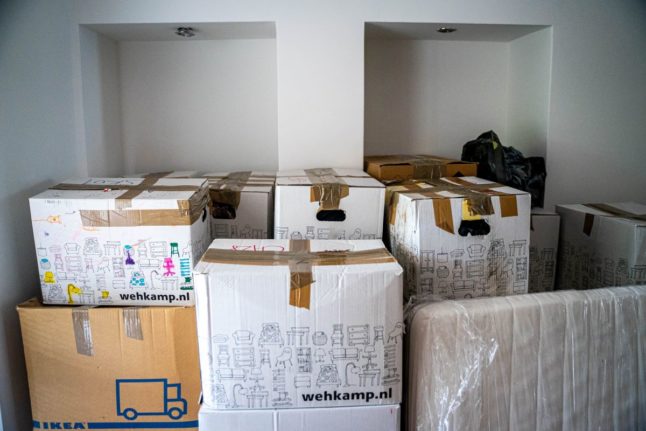This article is available to Members of The Local. Read more Membership Exclusives here.
It was 3am on a Saturday morning when I realized that moving to Germany was impacting our relationship.
My boyfriend crashed through the door and climbed into bed, triumphantly hailing his work gathering as the “best…night…ever!” (There was a free bar – it’s little wonder).
But I couldn’t bring myself to participate in the usual routine of good-natured scolding for the abrupt wake up and indulging his tipsy chatter. Instead, I scowled into my pillow, pretending to miraculously not notice Andrew’s arrival.
Honestly, I didn’t want to hear about yet another great night. In fact, I resented knowing just how much more fun he was having than I was on our move abroad.
Of course, that’s a terrible thing to admit. Shouldn’t this have been the ideal end-game for moving to Germany? At least one of us was getting along great in our new country, doing something as ordinary as enjoying a few too many Augustiners in the pub.
 Photo: DPA
Photo: DPA
After all, we are a couple, rooting for one another’s successes both mundane and extraordinary, even if it means standing the odour of beer in the bedroom while hearing in great detail about how much of it was consumed. We should be one team, always on each other’s side.
Nonetheless, rationally or not, his successes made it feel like he wasn’t on my side. I actually felt hurt that he was enjoying himself while I continued to feel unsettled.
At this point, our situations in Berlin were looking considerably different. Andrew loved his new job, immediately fell into a group of solid friends, and even bagged a promotion. Meanwhile, I was continuing to struggle with my mental health, and scrambled to carve out a new life because of it – all while Andrew seemingly had his handed to him.
Like with most relationship issues, solving this one meant talking candidly about it. I admitted that I was struggling to see him have such a great time. It’s an ugly thing to admit, feeling resentful as one of you settles into life abroad and the other flounders. But not sweeping it under the table meant that we could get to work together on finding solutions to ensure I got to sample some of this fun, too.
We introduced one another to our separate social circles, while making sure to maintain some degree of separation and independence in our lives. It was then that I met the people who went on to become some of my closest friends in Berlin. We made sure that we went to parties together, as well as maintaining sufficient quality time as a couple – not just watching Netflix in silence, but talking and staying fully in tune with how the other one was feeling.
In my last column, I mentioned having a party to celebrate six months in Berlin. A week later, I’m happy to say we hosted a wide group of friends, successfully built up by the two of us.
 A couple from Heidelberg in Berlin. Photo: DPA
A couple from Heidelberg in Berlin. Photo: DPA
Despite the difficulties, there are just as many perks to moving abroad as a twosome. As well as having a figure of immense support and familiarity, it is also brilliant fun to have a companion to explore your new city with. We shamelessly took selfies at the Brandenburger Tor, felt like somebody’s grandparents in the streets of edgy Neukölln, and delighted in discovering that video stores still exist in this country.
Sure, there were testing times, especially in the first few months. But even as we asked one another what the hell we were doing in Germany, there was never any doubt that that we would pull one another through every challenge thrown our way – and even have fun doing so.
In retrospect, it was true: moving abroad did impact our relationship. How could it not? Moving means undergoing enormous personal and professional changes, all in a new country without a best friend around the corner or a parent just a train ride away. The stress of starting again, the absence of the support network which propped you both up, and even the sheer amount of time spent solely together could drive apart even the most tight-knit couples when relocating.
But we became considerably closer. We improved our ability to communicate frankly, learned to proactively solve problems together, as well as establishing new boundaries on etiquette when drunkenly arriving home at 3am.
There’ll be no more abrupt wake-ups, but hopefully plenty of nights both of us could even deem the “best ever” in Berlin to come.
SEE ALSO: I arrived in Berlin expecting a giddy European adventure. Instead I got depression



 Please whitelist us to continue reading.
Please whitelist us to continue reading.
Member comments